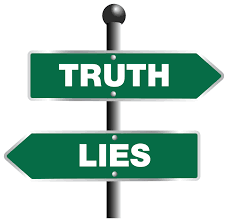 I’ve tried very hard and written consistently during this summer, making good use of the time I’ve had between visiting company, having grandchildren overnight, taking trips, and attending birthday parties.
I’ve tried very hard and written consistently during this summer, making good use of the time I’ve had between visiting company, having grandchildren overnight, taking trips, and attending birthday parties.
And that statement is a big FAT lie.
It’s a lie I’ve told myself this summer. And it’s a lie I’ve told others. Truthfully, I haven’t made very good use of my time at all. If the first statement were true, I would have much more to show for my writing time this summer.
Fooling Ourselves
Sometimes the lies we tell ourselves have a big enough “grain of truth” in them that we’re only guiltily aware that we’re stretching that truth. Honestly, I did put in quite a few hours per week on my book idea, but not nearly as many hours as I pretended. On the other hand, sometimes we know that we’ve stretched the truth to such an extent that it’s close to snapping like a rubber band.
Why do we do it? And more important, what can we do to stop lying and actually become productive with our hours?
I was pondering that question when I came across a post by one of my favorite “habits” bloggers, James Clear. I’ll quote a bit below, but then I hope you’ll click over to his full article if this portion describes you as closely as it has me this summer.
Stop the Lying!
We often lie to ourselves about the progress we are making on important goals.
For example:
- If we want to lose weight, we might claim that we’re eating healthy, but in reality our eating habits haven’t changed very much.
- If we want to be more creative, we might say that we’re trying to write more, but in reality we aren’t holding ourselves to a rigid publishing schedule.
- If we want to learn a new language, we might say that we have been consistent with our practice even though we skipped last night to watch television.
We use lukewarm phrases like, “I’m doing well with the time I have available.” Or, “I’ve been trying really hard recently.” Rarely do these statements include any type of hard measurement. They are usually just soft excuses that make us feel better about having a goal that we haven’t made much real progress toward. (I know because I’ve been guilty of saying many of these things myself.)
Why do these little lies matter?
Because they are preventing us from self-awareness. Emotions and feelings are important and they have a place, but when we use feel-good statements to track our progress in life, we end up lying to ourselves about what we’re actually doing.
Practical Answers
 Unless we distinguish between truth and the lies (and half-truths) we tell ourselves, we won’t make a lot of writing progress. That “honest introspection” comes first. Then, after admitting the truth, we can pursue solutions.
Unless we distinguish between truth and the lies (and half-truths) we tell ourselves, we won’t make a lot of writing progress. That “honest introspection” comes first. Then, after admitting the truth, we can pursue solutions.
James Clear’s article gives you some examples of what he uses for solutions. On Friday, I’ll share with you something I found that has turned my productivity around and provided the self-accountability I needed. Maybe it will help you as much as it’s helped me!